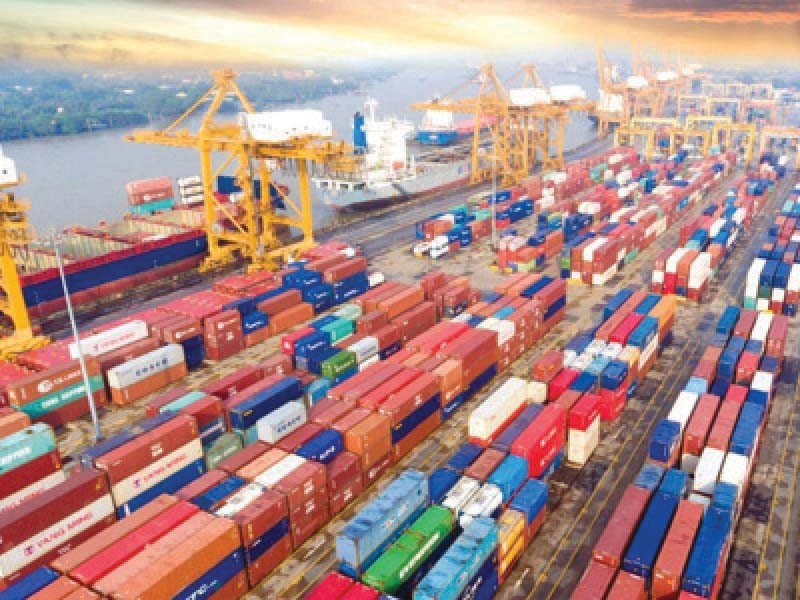The fall of the Pakistani rupee to Rs228 per US dollar has made economic worries worse and sent shockwaves through the country.
When the rupee falls, industries that use imported raw materials, like those that make auto parts and medicines, will have to pay more for their supplies. That will make inflation worse, and in the end, the general public will have to pay for it.
The country’s foreign exchange reserves are also being used up because the current account deficit is growing and it is hard to get money from outside the country. The State Bank’s foreign currency reserves were $9.3 billion at the end of the week ending July 15. This is down from $17.8 billion at the end of July 2021.
This means that there isn’t enough money to pay for imports for only 1.6 months. In the meantime, the SBP says that the country’s current account deficit for the July-May period of FY22 grew by $14 billion to reach $15.2 billion.
The rise in the trade deficit is the main cause of Pakistan’s current account deficit, which is one of the biggest problems the country is facing right now. During the last fiscal year, Pakistan’s imports went up a lot, which was much faster than its export growth.
Pakistan’s exports went up by 27% to $31.8 billion in the last fiscal year, which ended last month. This is according to the latest report from the Pakistan Bureau of Statistics (PBS). Imports, on the other hand, rose by 42% to $80.2 billion. So, at the end of FY22, the country had a trade deficit of $48.38 billion, which was up from $31 billion the year before. This 56% rise in the deficit has hurt Pakistan’s current account balance, forex reserves, and the value of the rupee.
Fixing the trade balance by cutting down on imports and pushing up exports is the key to a stable economy. The government has taken steps to do this, such as making it illegal to bring in a number of non-essential luxury goods.
Protectionist policies might help in the short term, but they could end up hurting the economy in the long run, so they might not be a good idea.
Instead of banning imports, the government should focus on encouraging investment, including foreign direct investment (FDI), to drive growth and expansion in industries that can take the place of imports.
Pakistan will be able to cut back on imports in a sustainable way if it makes more of the things it usually gets from other countries.
When you look at the PBS data more closely, you can see that the energy sector, especially the oil refining industry, is one area where the government needs to focus to make sure growth and investment. Keep in mind that the rise in the amount and price of energy imports was a big reason for the huge trade deficit.
In FY22, the country spent a huge $12 billion on petroleum products like gasoline and diesel. This was more than 166% more than the $5.16 billion it spent the year before.
During the year, both the price of fuel and its use went up, and the amount of petroleum products imported went up by 28%, to 18 million tonnes.
This import bill can be cut by a lot if Pakistan encourages investment in and growth of oil refineries. Because oil refineries turn crude oil into fuels like gasoline, diesel, and jet fuel.
If the local refineries made enough fuels, there would be no need to spend billions of dollars on buying expensive refined products from other countries. Pakistan would instead feed its refineries with crude oil that is a lot cheaper.
Pakistan has five large oil refineries that can each handle up to 449,000 barrels of oil per day. Unfortunately, the refineries have had some problems that have kept them from making as much gasoline and diesel as they could.
The main problem is that less furnace oil is being used since power companies switched to using LNG instead of furnace oil to run their plants. But now, LNG prices have gone through the roof.
On top of that, LNG cargo cancellations happen often in Pakistan. To use less LNG, the government should work with the power companies to make sure that some of the power plants always run on furnace oil.
This will also help refiners a lot and let them use their facilities to their fullest capacity.
If domestic refiners fully used their plants, they could save hundreds of millions of dollars or more than a billion dollars each year in foreign exchange. This is because foreign companies get a high refining margin when they import fuel, especially diesel.
To get oil refineries to grow and update, the government must also make policies that are good for business. There are no policies in place right now that would encourage refineries to spend money on growing and improving their plants. Air conditioning, kitchenware, cosmetics, toys, sanitary fixtures, and other industries should be looked at more closely. Some of these might not seem like big deals, especially when compared to oil refining, but together they can help Pakistan save a lot of foreign currency and get the country’s finances back on track.
Mahnur is MS(development Studies)Student at NUST University, completed BS Hons in Eng Literature. Content Writer, Policy analyst, Climate Change specialist, Teacher, HR Recruiter.










